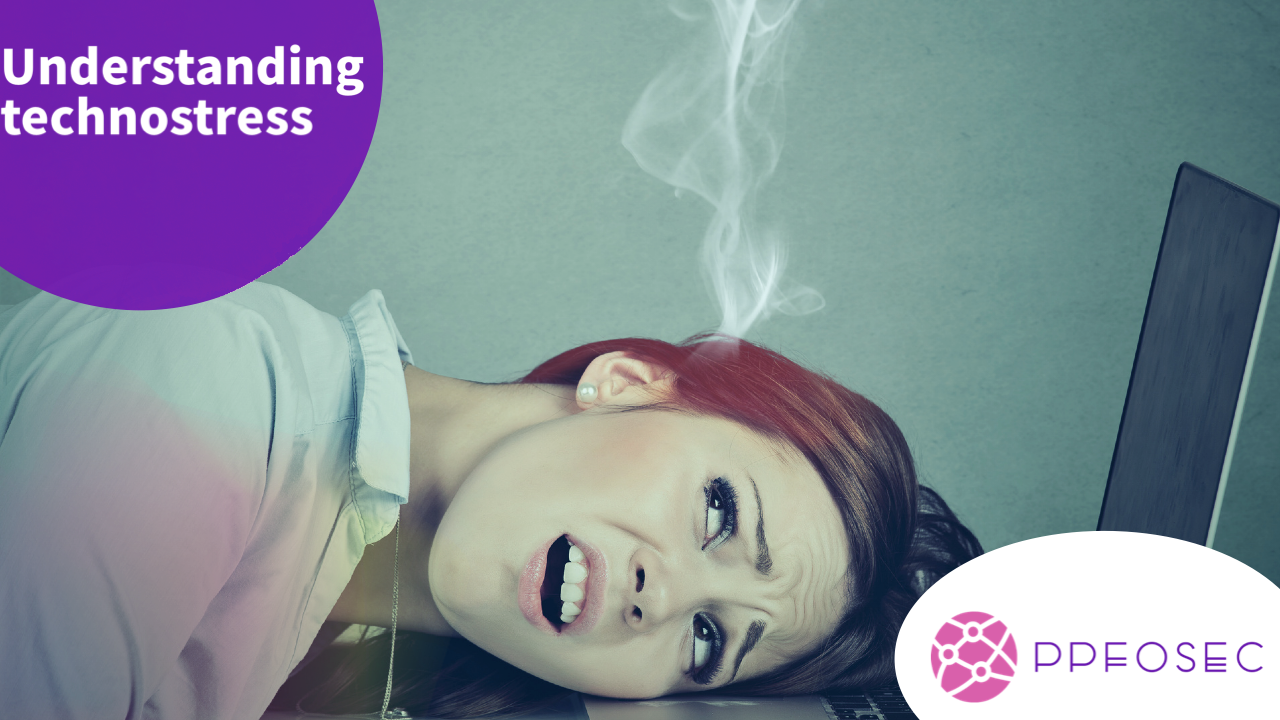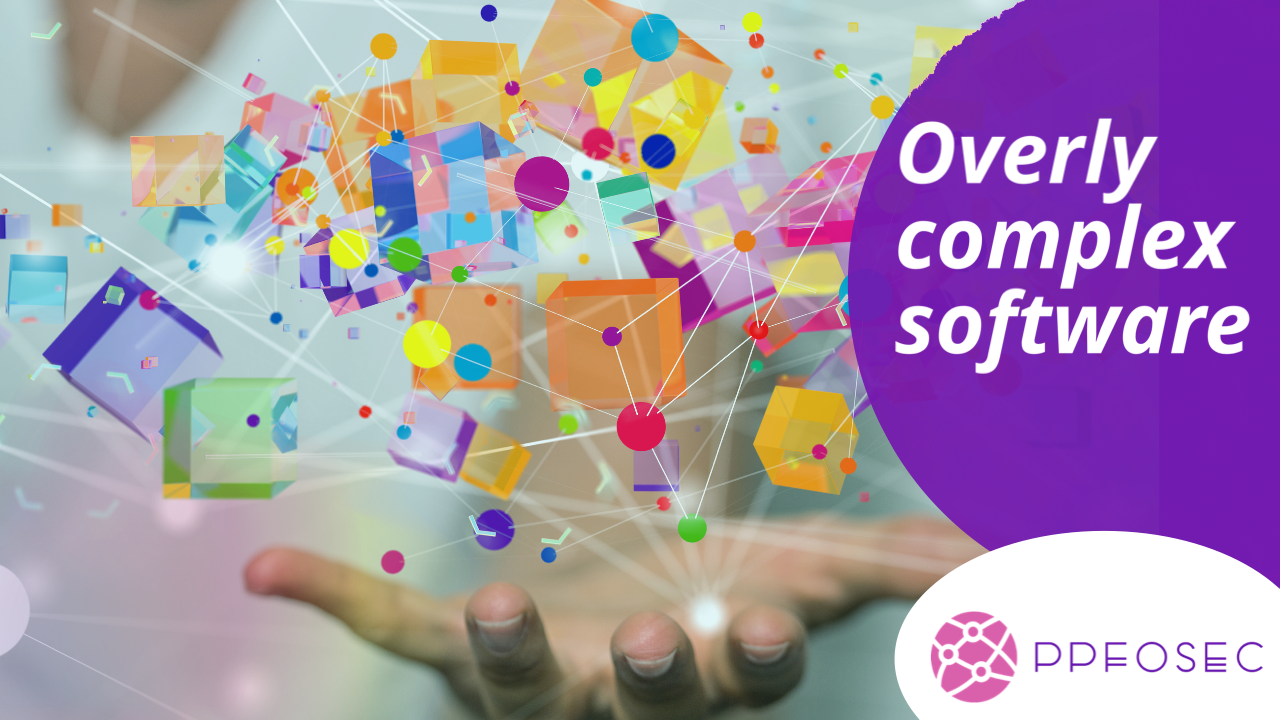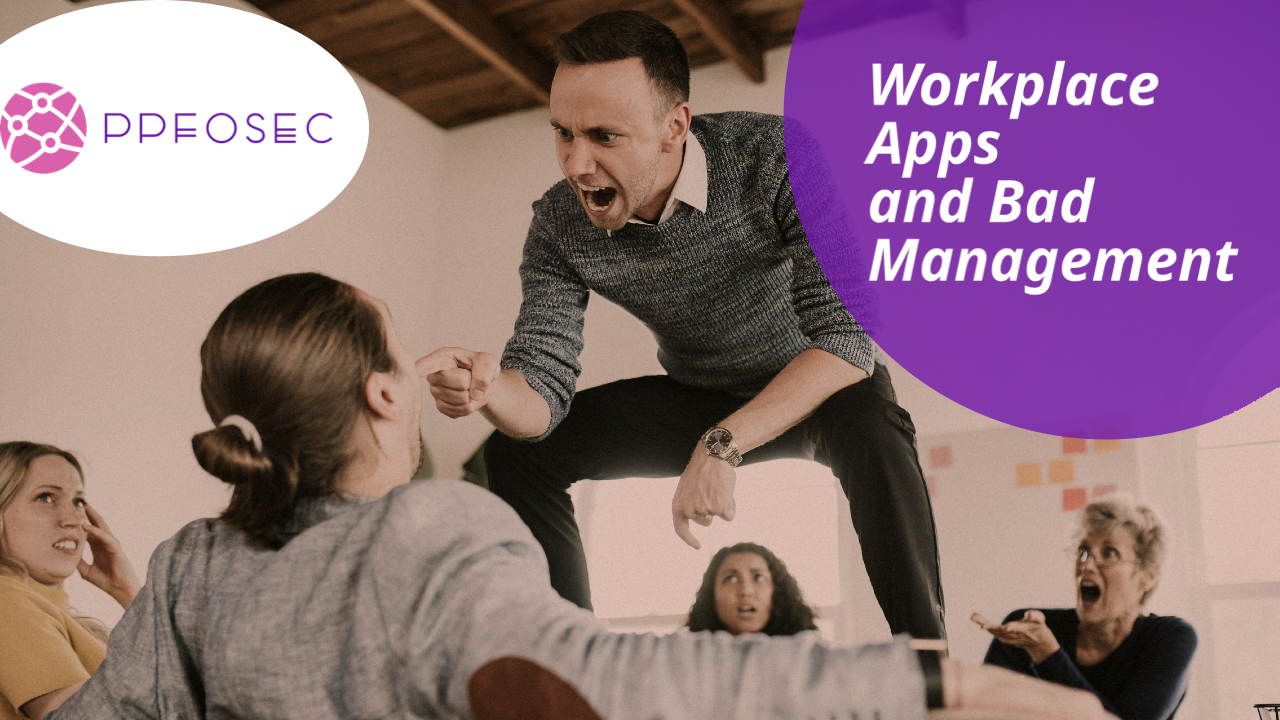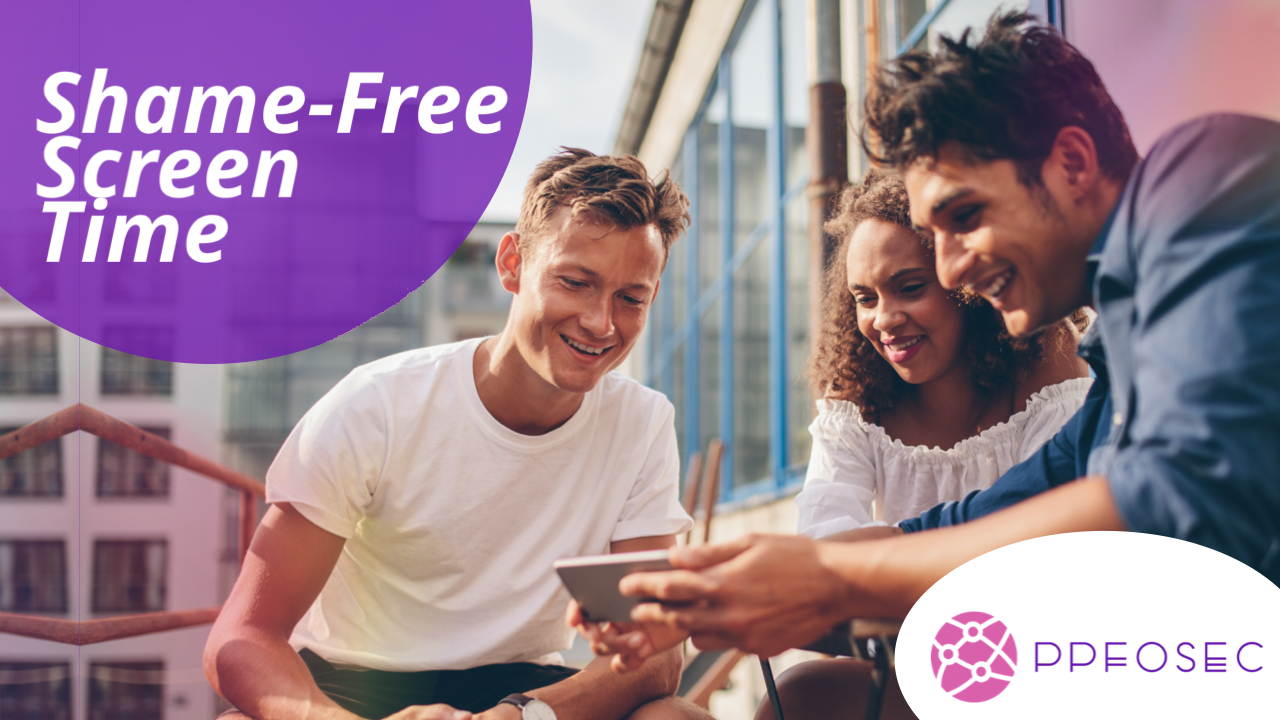💫 How to Manage Technostress, Guilt-Free
Overcome technostress without feeling guilty about your tech usage.

Last week was the first time one of my kids installed malware on the family tablet. It sent ad notifications in Chrome every five minutes for gambling and adult websites. Yeah. You can imagine how chaotic the reaction of our four boys became.
It took me five minutes to clean up the tablet. I purposely don't store anything of value on it. Nevertheless, the damage was done. I'm not talking about scams or identity theft. I'm talking about fear, uncertainty, and confusion.
It dawned on me. As a cybersecurity specialist, I am used to quantifying the impact of malware on businesses: data loss, downtime, brand impact, etc. But ultimately, the biggest impact is psychological. Think of it this way: in the past few weeks, people have been put on notice that their Twitter, Uber, LastPass, and Slack data have been compromised. What they hear is that they must rotate their passwords in many systems, all more confusing than the other. How does that make people feel? Like my kids when they saw those ads! The internet becomes this dangerous, overwhelming space.
And this week I learned that this feeling of helplessness is called technostress.
🙈 The many faces of technostress

Everybody today experiences technostress. Even people who aren't online! "What do you mean you don't have Facebook? Everybody is on Facebook!" This is stressful. My favourite article of the week, by Joanne Griffin, helped me understand technostress by breaking it down into five domains.

- Techno-overload is the most common that you see. Stress creeps in because people's mental spaces can't accommodate all the information brought onto them. The fear of missing out (FOMO) on key topics or trends also feeds the overload.
- Griffin associates techno-invasion with the rise of productivity spyware in corporate America. It's a bit of a reach! Think of someone's first reaction when they learn the amount of data Facebook keeps about them.
- Techno-insecurity is evident with the growth of artificial intelligence and people's worries that robots will take their jobs. I wrote about it here and here.
- Techno-complexity relates to all the clutter you see in applications. Allow me to illustrate it with two words: cookie banners. Griffin makes such a good point about workplace software that I want to expand further below.
Griffin's overarching argument is that our brains weren't meant to absorb this scale of complex information and that human-centred design must prevail in the upcoming decades. "When the effort we need to expend to achieve an outcome appears to outweigh the value derived from using the tool, our self-competence is eroded", she concludes. This is how you end up with people smashing keyboards or...

💾 Bad software as a catalyst for technostress

My parents are baby boomers. When we first got a computer, they were in their fifties. They lost sleep over their struggles with Microsoft Word. And Clippy. That thing is nightmare fuel.
It's easy to laugh now. But we're still experiencing similar anxiety over bloated apps.
After reviewing 20 workplace apps in the past 6 months, I am now convinced that product design and user experience reign supreme over features. Bring me a project management app that only has a kanban and messaging but a great colour palette, fast menus, and inspiring blog posts, anytime (read "Your tech stack is not the product" if you disagree).
Workplaces have been plagued by clunky software for decades. Enterprise software has been built for too long to maximize the checkmarks on an RFP document. It's no wonder Excel still thrives. I filled out my year-end performance evaluation and was dazzled that our HR system asked me, in a drop-down menu, to identify which protocol (HTTP or HTTPS) I needed to use when inserting a link. Why?
The very way many businesses purchase software incentivizes bad UX because most of the time the end users are not involved in the process. They provide "business requirements" and "we're off to the races"! This is why you work on bad software you barely use to its potential. This is why techno-complexity stresses you out.
Whether you are a techie or not, try to insert yourself in any conversation about the software you use at work. It matters.
But it gets worse...
📝 How techno-stressing software enables lousy people management

Consumer apps value engagement. Think of social media or video games. All their design aims to trigger dopamine rushes to keep your attention. They make you feel hollow after a while, "How did I sink an hour into that?", you ask yourself.
It's arguably worse when you get to the workplace.
What happens when you give people the possibility to monitor everything? I can't get over almost every project management app I've reviewed promotes time sheets so heavily when time is such a poor measurement of outcome. The Harvard Business Review made a case that America could cut its management headcount by half and become more productive.
Whenever people need to log into obscure consoles to fill time sheets or reports to increasing layers of managers, project managers, portfolio managers, and program managers, the "fish drowns out", as we say in French. People are at their best when they feel trusted and cared for. The "tech-invasive" approach, with its obsessive measuring, achieves the opposite. And software is happy to follow suit.
Software is at its best when it supports our creativity and innovation; when it inspires and engages. But the incentives to allow these apps to thrive in large enterprises are misaligned.
My point is: there is nothing wrong with you if you sometimes feel helpless behind a screen full of grey tables that take 10 seconds to load. Try to find yourself a "corner of paradise" in an app that does not suck, and make it shine.
😔 Most advice to cope with technostress implicitly shames people

So you have social media and gaming hacking your biochemistry to fill you in dopamine on one side, and bloated enterprise software meant to monitor you on the other. Depressing, isn't it?
What's the solution, you ask?
This is where we start to propose various forms of "tech abstinence" that fail to take into account the benefits of the digital world. I think everybody agrees on "discouraging excessive exposure to tech", as suggested in this article from Corporate Wellness magazine. The issue is I feel most of the advice is framed in a "technology = bad" state of mind. "People look at their phones instead of talking at restaurants, what a bunch of zombies!", says everybody. Even Griffin frames the problem as "infobesity". Read: technology usage is inherently shameful.
I admit it, as a parent, I am biased. Whatever your opinion on the preferable screen time for kids and teens, you will feel judged; and you will judge other parents. Data confirms.
Long term, I fail to see how pressurizing people who are already under stress can work.
💡Becoming a wise technology consumer

My proposition lies in education, as usual. "Screens" are not black boxes (cheesy people will say sometimes they're white or grey, but you know what I meant!). Context and content matter. They're not created equal. You've probably heard about some form of "online diet" where you get your news from Wikipedia, use various apps to lock social media during the workday, etc. This is working on content. Context also matters. Watching cats riding Roombas fills a need, after all.
What should you do, then?
Set priorities!
People with more willpower will encourage setting boundaries. If you can afford them, by all means, enjoy! What I dislike about creating a boundary between work and life, between digital and real life, is the sentiment of disconnect it brings. If you want to answer this by blasting me with an "It's because you're addicted!", I recommend reading the above section about screen shaming.
I feel prioritizing alleviates the pressure to disconnect. What should you be working on right now? This is where relationships, both at work and in your personal life, can play a critical part. You know these more or less empty "let me know if I can help" messages you sometimes get? What if you asked them to discuss priorities instead? "This is what matters right now" feels more positive to me than "Get off your screen!"
Yes, text messages can help
Have you ever been in contact with somebody experiencing a deep sadness who told you that just being in the same room with you was soothing? This is not the movies, you don't have to spit out metaphysical jargon or witty one-liners to cheer people up.
A digital message is all it takes for people to feel somebody cares. Yes, your mom likely disagrees with me on this. Context matters as I've said earlier.
Engage in conversations with weight
Talk about my spin on "infobesity"! There's a better use for your creativity than arguing online about climate change. Written conversation can feel more comforting in certain situations. My point is you can become as skilled in talking as in writing. Most of the battle is choosing who you engage with, and on which platform. ChatGPT won't replace human empathy anytime soon.
In the deluge of content, we should seek people who can connect with us. If this happens in text, then so be it! This brings me to...
Choose Communities
I've written before about how digital communities are the internet's superpower. Online relationships can help you manage technostress, especially when the groups gather away from other stressors such as news. The beauty of digital is allowing anybody to bond over shared hobbies or fields of interest. Most people, deep down, experience some form of nerdism! We focus a lot, and rightfully, on teenage cyber harassment. But remember those who experience the opposite effect: gathering with supportive, like-minded individuals. You can do it as well! Just look at what's on your shelves, and there's probably a vibrant community built around it. Look, here's a subreddit about fluffy dogs.

🥊 This Week In Tech
- Lumus made an augmented reality glass that looks a bit less than awful. I remain convinced AR and VR will stay niche as long as the wearable headgear will not look like standard glasses. Even then, contact lenses exist for a reason! People don't mind watches. They hate to wear stupid stuff on their heads. Story
- Shopify management goes full "calendar purge". All meetings involving two or more people were cancelled. As is often the case with me, I agree with the problem but am doubtful about the solution. Meetings are a staple of bureaucratic waste. I know. I once attended a 1-hour meeting about the relevance of having said meeting. But it feels to me like Shopify is going ideological with a blunt solution. Give principles. Trust your employees to do the right thing. Story
Most people feel there are too many meetings.
— Andy Budd (@andybudd) January 15, 2023
However most people also hate the idea that they aren’t being included in important conversations and decisions.
- Robot Lawyer DoNotPay makes headlines. The AI technology was used for the first time in a court of law. A citizen wore a headset that listened to the hearing and fed answers to the plaintiff. DoNotPay's CEO now offers $1 million for anyone willing to use his technology in front of the Supreme Court. I actually believe at this stage that using AI in a Court of law is unethical. I see it as a form of automated decision-making which should undergo rigorous audits for bias and transparency. And I do not just say that because my father was a lawyer, okay? Story
- McDonald's unveils a fully automated restaurant, people lose their minds. I understand people's insecurity around AI and automation robbing them of their jobs. On the other hand, Mcdonald's in my city offers 33% above minimum wage, and still cannot hire. Automation will be necessary to deal with an aging population. Story
🎧 Clip of the Week
@ariel_comedy It's been a hard couple of years #comedian #standupcomedy #funny #comedy #standup ♬ original sound - ariel elias


